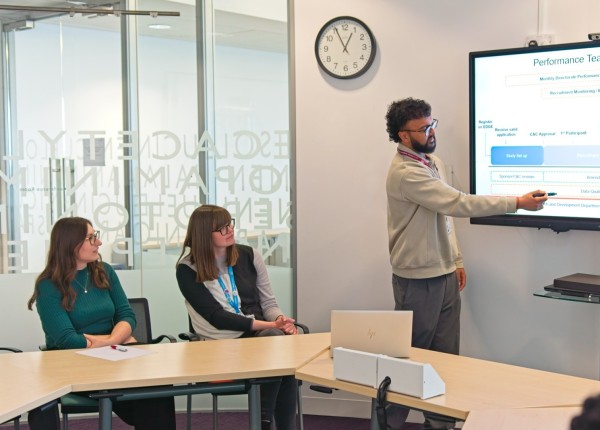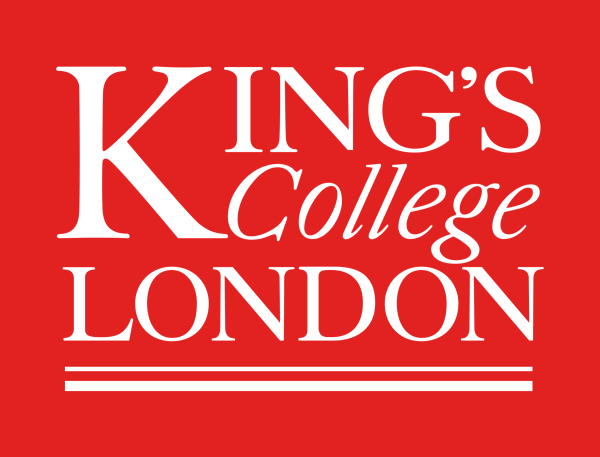
What is the JRO Peer Exchange Programme (PEP) and why is it needed?
To date, the R&D management community across the local conurbation has been challenged to sustain their support in order to extract and share knowledge in relation to standardising and streamlining processes that accelerate the initiation and delivery of translational and clinical research. Without a robust development and succession planning programme that facilitates the retention of high-quality research management expertise in both organisations, there is a significant risk of not being able to achieve the key clinical research excellence deliverables.
The PEP enables GSTT and KCL to share best practice via a ‘menu’ of solutions ranging from access to training events to short-term exchange visits between a host and visiting site.
The programme will achieve a number of key objectives:
- Encourage communication of ideas and good practice across the research workforce
- Promote cooperation on standardising and streamlining R&D management practice
- Build stronger personal relationships and strengthen the Research workforce community
- Provide a mechanism whereby expertise and experience remains within King’s Health Partners (KHP) and is not lost to other centres or regions
- Create a unique exchange programme in the UK that enables the research workforce to gain practical ‘on the job’ experience in GSTT or KCL through agreed governance arrangements
In delivering this programme, the JRO will create sustainable networks at three levels:
- The Individual R&D Manager/Administrator/Specialist
- The Research Directorate
- The Organisation
The JRO will work with both organisations to better understand the administrative and management skills required to accelerate the initiation and delivery of translational and clinical research across GSTT and KCL and ensure that research management expertise is retained within KHP through pro-active succession planning. Furthermore, it will work to strengthen the entire network including individual, internal and external connections to other partners. The JRO will connect individuals who may previously have been working in silos with the explicit intent of exploiting the benefit of ‘weak ties’ as a means of growing stronger and stronger networks. This may include hosting visiting teams, fielding visiting teams, short-term work placements and internal consultancy.
Key Benefits to KCL, GSTT (and King’s Health Partners)
The Peer Exchange Programme will benefit both organisations in a number of ways:
- It will serve as a networking opportunity, giving the research workforce community a chance to work more closely with their counterparts in the other organisation, encouraging communication, enhancing the research culture by working together on a regular basis perhaps to test new processes and procedures.
- Spread good practice, undertaken by the individual partners. Each individual taking part in an exchange meeting or visit will present the experience gained to their colleagues. This will, both benefit the partnership and bring new ideas to the table in each partner organisation.
- Provide individuals taking part in the programme with a better understanding and knowledge of how different processes and procedures are undertaken in different organisations. Across the KHP conurbation stronger ties between organisations will be established and the best practice identified and shared.
Although it is important that the peer exchange programme contributes to the partnership, it is also very, if not more important, that it contributes to the specific partners involved in each of the visits in order that they see the added value the JRO brings.
There are number of ways in which the peer exchange programme will contribute the individual partners:
- Peer exchange visits will enable the partners to share the knowledge with each other. For example, a partner that is interested in building a career development programme for trial managers will be able to send someone from their organisation to the other organisation that has long and established procedures for doing just that (e.g. King’s Clinical Trials Unit (KCTU). Therefore, an individual partner will be able to use peer exchange as a direct tool for learning new practices and processes.
- Peer exchange will be innovative as it will enable the research workforce staff from one organisation to go to the other organisation and work there for the whole or part of the length of the exchange. This will ensure that the experience gained is not only theoretical but also practical. Someone coming back after spending a week learning about building a trial manager’s career development programme will not only be able to describe how it works but will also be able to demonstrate it as well, because they have personal and practical experience.
- Individual partners will also be able to use peer exchange as a motivational tool. It will be an opportunity to reward the members of staff who have performed well. Or by achieving certain goals individuals will be able to earn a chance to go on an exchange visit.
Peer exchange visits can take the shape of:
- Network facilitating activities, for example, seminars, workshops, conferences focusing on the research workforce.
- Study and experience exchange meetings where the host and visitor can share their experiences and study the example of best practice
‘On-the-job’ visits where the visitor is involved in the day-to-day work of the host organisation to better understand the practical application of the processes in place. ‘On-the-job’ visits, as part of peer exchange programme, are currently unique and will enable staff from the other partner organisation to gain hands-on experience.
If you are interested in utilizing this opportunity, please use the button below and select JRO Peer Exchange Programme on the Contact us form.
